Our rapidly changing world presents unprecedented opportunities and significant challenges.
The Stephen J.R. Smith Faculty of Engineering and Applied Science at Queen’s University is changing the face of engineering education, so future engineers can be leaders in the face of complex and multidisciplinary global issues.
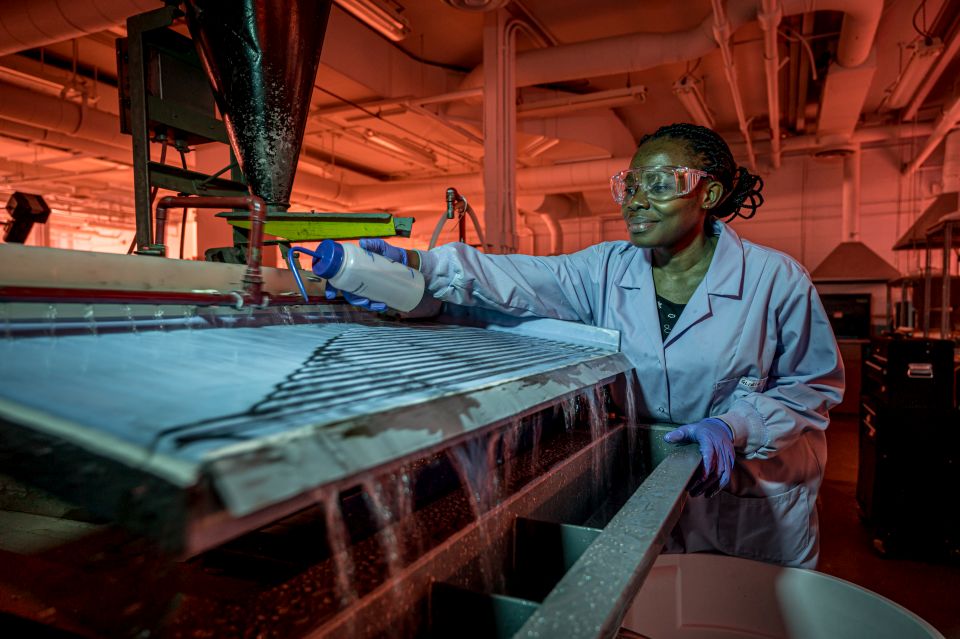
This new model of engineering education will be technically rigorous, experientially focused, socially conscious and creatively inspired. It will ensure graduates have the knowledge and tools to not only create our technology and processes but to guide their evolution, and how they integrate with society and the world.
With the generous support of Queen’s Engineering alumnus and business entrepreneur Stephen Smith (Sc’72, LLD’17), a Smith Engineering education at Queen’s will become the clear choice for aspiring and globally minded problem solvers seeking to build a better future across all sectors of society.
This re-invention is not an incremental undertaking. To truly excel in this area, this endeavour must envision humanity’s needs in 10, 20 or even 50 years —and effect change at scale so the Faculty can educate our students to contend with these realities.
Engineering for humanity.
Our educational approach will involve framing problems with a deep understanding of users’ needs, ensuring that knowledge and creativity are applied to solutions to have the greatest positive impact. We will look beyond the boundaries of traditional engineering, incorporating perspectives from diverse disciplines and communities. Collaborative projects engage students with various stakeholders, fostering empathy and a sense of responsibility. Our goal is to instill a mindset where creative and critical thought are central to engineering practices and results tailored specifically for addressing the needs of humanity.
Problem based learning.
Students will work in collaborative teams on real-world challenges to build knowledge and skills. These authentic experiences provide autonomy for students to take ownership of learning, apply knowledge in practical settings, and reflect on relevance for future engineering activities. Problems drawn directly from current research, community needs and industry demands will vary in scope and complexity from realistic constraints to real-world scenarios. This approach involves developing suitably complex, open-ended problems, delivering appropriate instruction, facilitating effective teamwork, and providing consistent feedback.
Competency based assessment.
Instructors will assess and provide ongoing feedback to students on their progress toward competency (mastery) of clearly defined learning objectives and provide repeated opportunities to improve. This approach emphasizes the demonstration of mastery through the application of knowledge through various means, such as projects, presentations, portfolios, simulations etc. In addition, this assists graduating students to articulate their competencies to future employers and establish themselves as professionals.
Experiential learning.
By integrating insights from industry, community and research into our curriculum and beyond, we will ensure all students gain access to cutting-edge professional development and experiential learning opportunities. Students will have support to pursue a breadth of engaging experiences, such as international exchanges, leadership in student engineering groups and optional internship. From the outset, our holistic approach entwines career development into the classroom and co-curricular experiences, immersing students in meaningful research and the practical application of their studies.

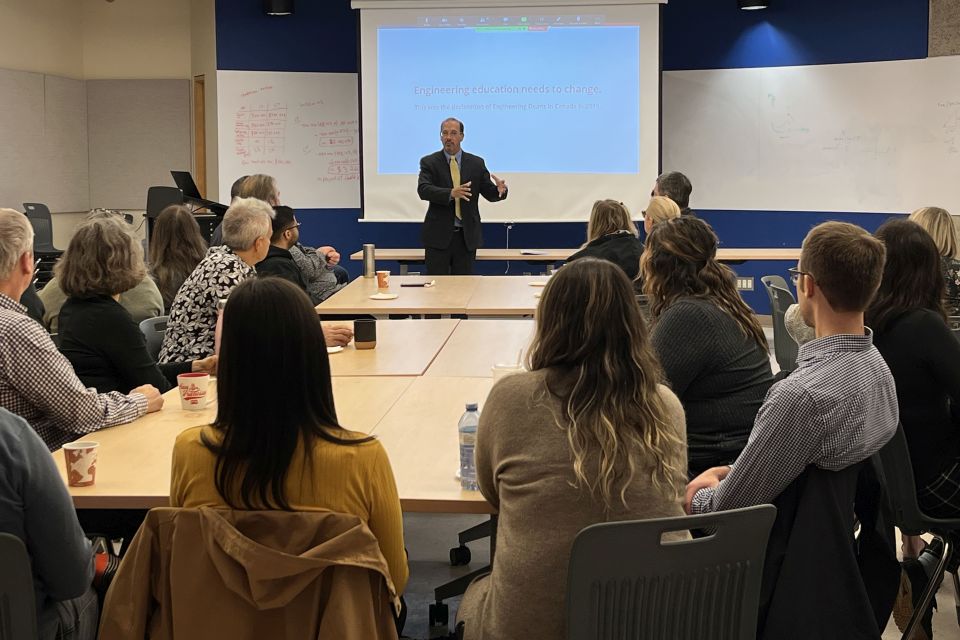
A phased approach will be one where changes will be part of a consultative process with our students, faculty and staff. Smith Engineering will consult broadly within the community about how to implement within constraints, and identifying how we prioritize our time to achieve these goals.
Smith Engineering will employ strategies that promote the development of empathy, creativity and curiosity—expanding collaborations with industry and alumni to incorporate meaningful problems throughout curriculum, explicitly developing skills required for solving the complex problems of tomorrow from day one in our program.
The Faculty’s problem-based curriculum will be clearly tied to the UN’s Sustainable Development Goals. Students will learn to solve future real-world problems by addressing today’s problems in class in partnership with local and global community and industry partners. They will acquire strong technical skills and critical thinking skills to take culture, ethics and stakeholder engagement into consideration when tackling the important problems facing our world.
Experiential learning and competency-based assessment will instill confidence in students that they can develop skills at their own pace and clearly articulate them.
Smith Engineering’s faculty and alumni networks will play a critical role in collaborations with industry, business, non-profits, and policymakers to incorporate meaningful problems throughout the Faculty’s curriculum.
Positive impact on the global stage requires a global perspective, and solutions for a diverse humanity come from diverse teams. Humanity is an interdependent tapestry of voices, lived experiences, cultures and creeds—and engineering programs across the world are working to break down barriers to inclusivity and diversity.
Smith Engineering will build on the momentum in our field, recognizing that inclusivity is a moral obligation as well as a catalyst for innovation and uncovering novel paths to progress.
Changes to the Faculty’s programs and educational models will attract students from a broader set of backgrounds and with more diverse perspectives. Strategic faculty recruitment and support will give students access to a purposeful range of pedagogy. The problems Smith Engineering presents to its students will be global in nature and tackle the challenging interplay between technology and society.
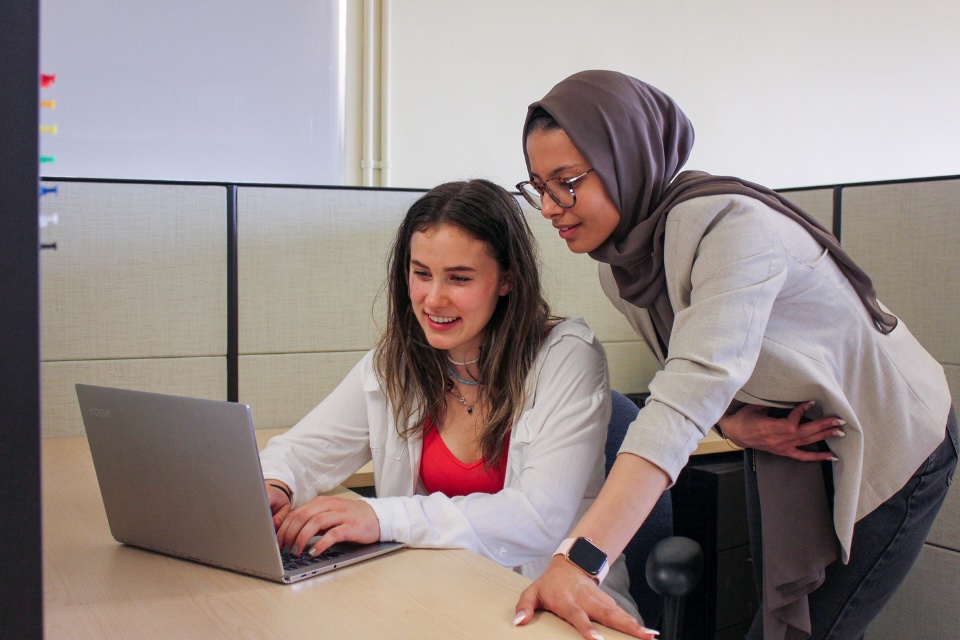
We have an exciting opportunity to reimagine engineering education over the next few years. We are currently in the early stages and would like your input and involvement. There will be resources available to assist in the development of these changes. However, right now we are at the idea generation stage and would like to hear from you. Please see our Faculty and Staff Call to Action, presented April 23, 2024.
We invite you to submit an expression of interest to develop a pilot for the 2024-25 academic year. The deadline for submission is May 15 with a second call by June 28: smitheng.ca/ree-pilot
Is there someone you would like to invite to be a guest speaker between June 2024 and April 2025? The deadline for submission is May 15 with a second call by June 28: smitheng.ca/ree-speaker
A ThoughtExchange is like a survey, but better!
You will be asked an open-ended question and anonymously submit your thoughts. You will then have the opportunity to see other people's thoughts and rate them on a scale of 1-5 based on how strongly you agree with them. You can always come back to your survey later on and add or rate more thoughts.
Watch the video below to learn more.
Smith Engineering can't reimagine the future of engineering without the support and input of our community. As such, we ask that you fill out our ThoughtExchanges, attend our Town Halls, and make sure your voice counts.
Past or Closed ThoughtExchanges
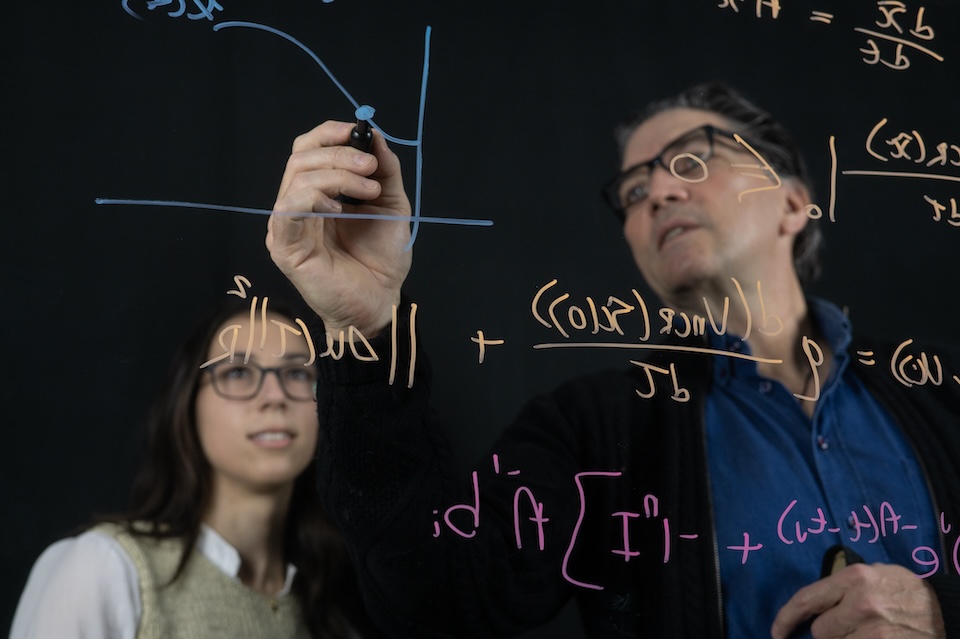
Faculty and Staff: What do you think our top priority should be for our reimagined engineering education?
Launched: February 7, 2024
Closed: February 18, 2024
This exchange took place prior to the faculty and staff call to action information session, hosted by Dean Deluzio. The purpose of the information session was to discuss our vision to improve engineering education, and how faculty and staff are a vital part of this process and the next steps.
View ThoughtExchange results
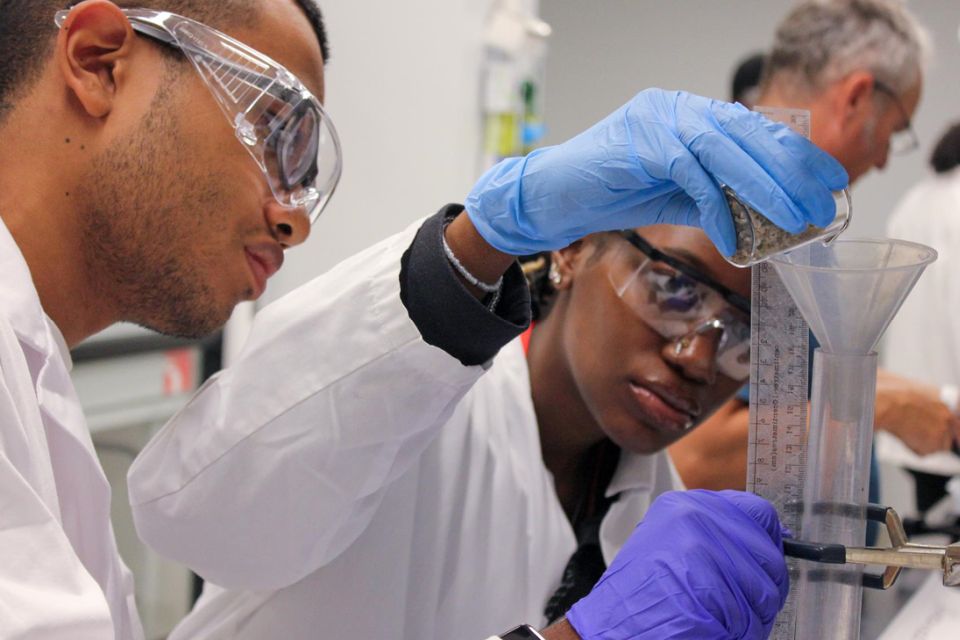
Students: What do you think our top priority should be for our reimagined engineering education?
Launched: January 22, 2024
Closed: February 2, 2024
As part of Reimagining Engineering Education we launched a student ThoughtExchange to gather student input. This exchange took place prior to the student townhall session hosted by Dean Deluzio. The purpose of the townhall was to facilitate an open discussion on our goals and vision for the future of engineering education. This exchange played a crucial role in informing the discussion during the townhall, by identifying the priorities of our current students.
View ThoughtExchange results

Stephen Smith, BSc’72, LLD’17, is one of Canada’s leading entrepreneurs in the financial services industry. He is renowned for innovation in information technology and financial structuring in the Canadian mortgage industry. He earned a Bachelor of Science (Honours) in Electrical Engineering from Queen’s University (’72) and a Master of Science (Economics) from the London School of Economics and Political Science. In 2017, he received an honorary degree from Queen's University. Mr. Smith is the Chairman and CEO of Smith Financial Corporation, which has significant equity investments in a range of financial services businesses: First National Financial Corporation, Canada Guaranty Mortgage Insurance Corporation, Fairstone Bank of Canada, Peloton Capital Management, Equitable Bank, Glass Lewis & Co. and Home Capital Group.
Our new name marks the start of a transformative era in engineering education.
The logo for Smith Engineering at Queen's is a dynamic symbol of this evolution, expressing our commitment to the engineers of tomorrow and our mission to foster positive global change.
Crafted with building blocks, the logo represents the layered challenges and diverse solutions engineers engage with every day, and when animated it comes alive, capturing the energizing spirit of invention, re-invention and transformation.
This is our future-focused identity.
This is Smith Engineering.